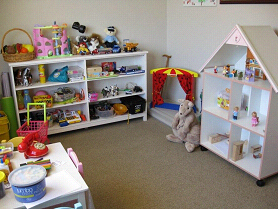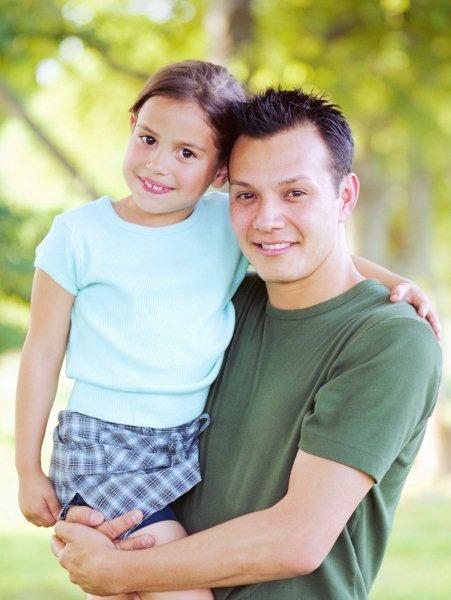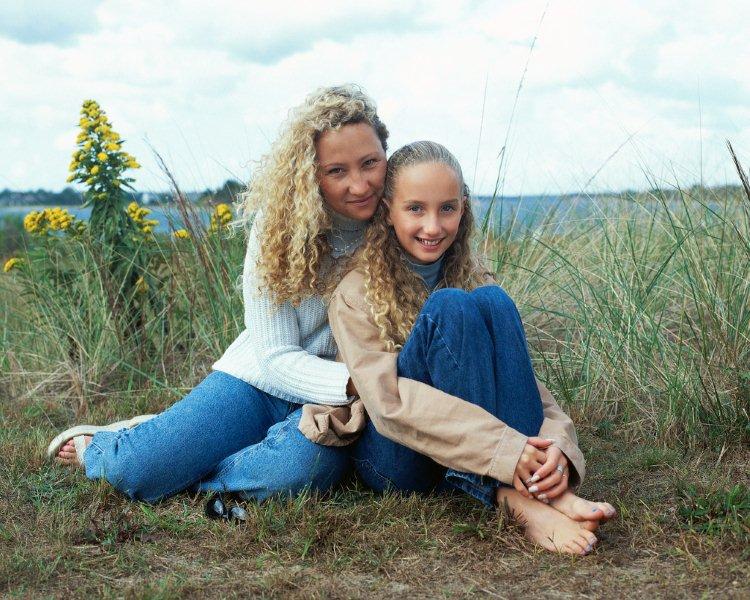 | ||||
PLAY THERAPY Q&AWHAT HAPPENS IN A PLAY THERAPY SESSION? Play Therapy sessions are usually held in a specially set up quiet room, where the play will not be interrupted. Parents are not expected to be in the play session, although some children may need a parent to stay with them at first. In the playroom, the child can express feelings, thoughts, experiences and behaviours through play. The child selects toys and activities with and the play therapist may join in the play at the child's invitation and under the child's direction. The toys are used like words in the child's natural language of play and enable them to explore and act out feelings, thoughts, and experiences.
Play Therapy sessions are usually held in a specially set up quiet room, where the play will not be interrupted. Parents are not expected to be in the play session, although some children may need a parent to stay with them at first. In the playroom, the child can express feelings, thoughts, experiences and behaviours through play. The child selects toys and activities with and the play therapist may join in the play at the child's invitation and under the child's direction. The toys are used like words in the child's natural language of play and enable them to explore and act out feelings, thoughts, and experiences.HOW LONG AND HOW FREQUENT ARE THE PLAY THERAPY SESSIONS?The sessions are usually weekly and each therapy session lasts about 30-45 minutes (depending on the child's age or any special needs). Wherever possible the sessions are scheduled for a regular day and time. This becomes your child's special time and this predictability and consistency is important to the Play Therapy process. The number of Play Therapy sessions varies from child to child. If a child is working through significant issues, it will take more time and patience for Play Therapy to reach its full effect.WHAT CLOTHES SHOULD MY CHILD WEAR TO PLAY THERAPY SESSIONS?Please dress your child in old clothes so that s/he does not have to be worried about getting paint, sand or water on clothes and shoes. If you are coming straight from school, please bring a change of clothes. This usually helps a child feel less anxious in the playroom and can enable him/her to feel more freedom.DO I NEED TO STAY WHEN MY CHILD IS IN THE PLAY THERAPY SESSION?Yes, it is important that your child knows that you are outside in the waiting room and that we can come and check should s/he feel any need.HOW DO I EXPLAIN PLAY THERAPY TO MY CHILD? You can tell your child that they will be coming to a special playroom and s/he will be seeing Donna there. You can say that the playroom is a place where s/he can do most of the things that s/he wants to do. Let your child know that s/he doesn't have to be scared because s/he will not be made to do anything that s/he doesn't want to do. S/he will be the one who decides what s/he wants to do and when s/he wants to say something.
You can tell your child that they will be coming to a special playroom and s/he will be seeing Donna there. You can say that the playroom is a place where s/he can do most of the things that s/he wants to do. Let your child know that s/he doesn't have to be scared because s/he will not be made to do anything that s/he doesn't want to do. S/he will be the one who decides what s/he wants to do and when s/he wants to say something.If your child asks why s/he is coming to the playroom, it is important to clarify that s/he is not coming because s/he is "bad," but rather because s/he has some things (i.e. feelings, behaviours) with which s/he might need help. You may say (depending on the circumstances) something like "when things are hard at school/home/with friends, it can help to have a special place to play.. With older children, I will talk to them at the beginning of the first session (with the parent present) about why they are coming for Play Therapy sessions. If there has been a traumatic incident or if there is a particularly challenging family situation, I prefer to let the child know that I am aware of this. I will not expect or need your child to respond or talk to me about what has happened. I will discuss this with you in the first meeting that we have, before I see your child for the first Play Therapy session. Please do not instruct your child to use the therapy time in a specific way (i.e. "Talk about what happened today at ..."). Children will express what they need to express at their own pace. Just advise me of any significant recent events that may have impacted on your child. WHAT SHOULD I SAY TO MY CHILD AFTER A PLAY THERAPY SESSION?In the best interest of your child, I prefer that you do not ask him/her about the session (e.g. "how was the playroom?" or "did you have fun?") If, however, your child wants to tell you about the session, s/he is welcome to do this. It is important that you respond in a positive way, showing interest in what your child is saying, but without asking questions. Sometimes children after a Play Therapy session do not want to talk about what has happened. It is best that you follow your child's lead.If your child shows you something that s/he has made during the Play Therapy session, it is of great value, as it has come from your child. However, rather than praising your child or assessing it from an adult perspective, please try to be non-judgemental and just comment on the colours etc. e.g. "you have used a lot of different colours on your picture" or "Looks like you took a lot of time doing that picture, it seems it is really special to you." WILL YOU (THE THERAPIST) SPEAK WITH TEACHERS OR OTHER PROFESSIONALS?I am happy to speak to your child's school teachers and to discuss ways that they can support the Play Therapy. It can be very helpful for me to speak to the teachers and any other professionals involved with your child to understand how, from their viewpoint, your child is progressing educationally, emotionally, psychologically and socially. I will need to have your written permission to do this. I would advise you what I am intending to discuss prior to any meetings or phone contact with any other professionals involved, to make sure that you are comfortable with this.
WHAT CONTACT WILL WE HAVE WITH EACH OTHER?I will phone you after the first Play Therapy session to let you know generally how your child accommodated the new experience and also to check how s/he was after the first Play Therapy session. We will have contact approximately after every 4-5 Play Therapy sessions (or phone calls in special circumstances). This will be discussed with you at our first meeting.In this Play Therapy approach, we do not generally talk about your child's specific play as this can interfere with your child feeling free to express him/herself. If something arises in a Play Therapy session that I feel is important to talk to you about, I will give you a call. If anything happens between sessions that is traumatic, worrying, potentially disruptive or very positive for your child, I would appreciate you letting me know about this by phone. When you bring your child for Play Therapy sessions, this is his/her special time and I would ask that you do not discuss with me what is happening or has happened for your child during the day/week at this time. You are welcome to phone or email me with any concerns that you may have. |
||||